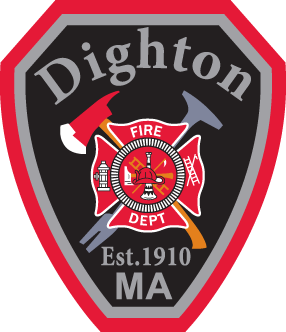DIGHTON — With National Fire Prevention Week kicking off over the weekend, Chief Christopher Maguy and the Dighton Fire Department would like to remind residents about safety precautions to take to prevent house fires and the appropriate actions to take in the event of a fire.
National Fire Prevention Week, organized by the National Fire Protection Association (NFPA) begins this year on Sunday, Oct. 6 and ends on Saturday, Oct. 12. The annual campaign seeks to educate and provide the public with valuable safety recommendations and steps they can take to prevent possible fires and react properly in the event of a fire.
The theme of the 2019 National Fire Prevention Week is “Not Every Hero Wears a Cape. Plan and Practice Your Escape!” in an effort to remind people of the critical importance of creating and practicing an escape plan should a fire start.
According to the NFPA, a person may only have a two-minute window to escape from a fire after a smoke alarm is activated.
“Fire Prevention Week is a chance for residents and families to be prepared in case an emergency happens,” Chief Maguy said. “Updated smoke alarms, safe cooking techniques and properly installed heating equipment are all essential to preventing a fire emergency. And if a fire does occur, it’s crucial for everyone to know how to react in that situation.”
The Dighton Fire Department wishes to share the following safety tips provided by NFPA:
Home Fire Escape Planning and Practice
- Create a home escape plan, and make a map. Share that plan with all members of your household. Designate a minimum of two ways to get out of each room, if possible.
- Teach children how they can escape, should they need to get out of the home on their own.
- Make sure all doors and windows to the outdoors are easy to open.
- Designate an outside meeting place a safe distance away from the home where everyone in your household should meet in the event of a fire.
- Practice a fire drill at home with your entire household, once at night and once during the day time, twice a year. Make sure everyone in your household practices using different routes to exit your home.
- In the event of a fire and while practicing fire drills, close doors behind you as you leave.
- If you are evacuating and there is smoke, get low and proceed beneath the smoke.
- If the smoke alarm sounds, exit the building and call 911 once you are outside the building. Never go back inside while the fire is ongoing.
Smoke Alarms
- Smoke alarms can mean the difference between life and death in a fire. Working smoke alarms cut the risk of dying in a home fire in half. Install smoke alarms in every sleeping room, outside each separate sleeping area, and on every level of the home, including the basement.
- Test smoke alarms at least once a month using the test button.
- Make sure everyone in the home understands the sound of the smoke alarm and knows how to respond.
Cooking
- Unattended cooking is the leading cause of fires in the kitchen. Always stay in the kitchen when you are frying, boiling, grilling or broiling food. If you are simmering, baking, slow cooking or roasting food, check it regularly and do not leave the home while food is cooking.
- Keep anything that can catch fire away from your stove top.
Heating
- Heating equipment is one of the leading causes of home fires during the winter months. Space heaters are most often involved in home heating equipment fires.
- All heaters need space. Keep anything that can burn at least 3 feet (1 meter) away from heating equipment.
- Have a 3-foot (1-meter) “kid-free zone” around open fires and space heaters.
- Purchase and use only portable space heaters listed by a qualified testing laboratory.
- Have a qualified professional install heating equipment.
- Maintain heating equipment and chimneys by having them cleaned and inspected by a qualified professional at least once a year.

